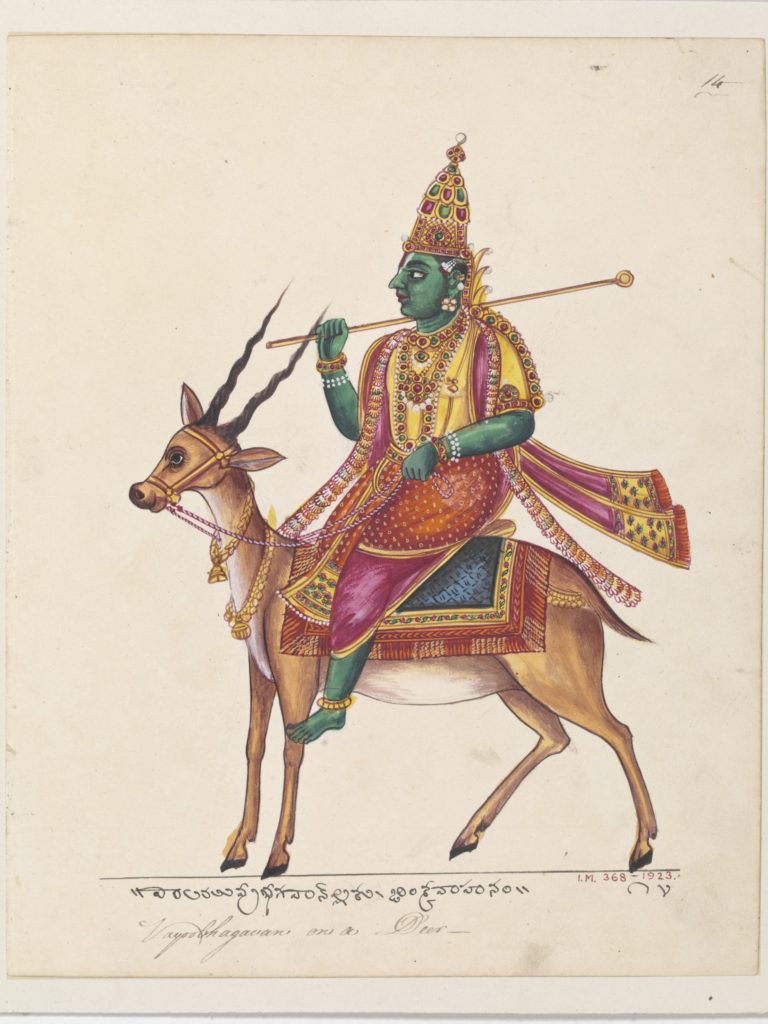Throughout history, the wind has captivated the human imagination, shaping ancient spiritual beliefs. In all ancient belief systems we find the importance of the wind and the deities associated with it. The unpredictable nature of weather in ancient times had a huge impact on daily life, crop yields, survival, and even migrations were dictated by the wind. This constant uncertainty would inevitably lead to a deep fascination with and a need to explain the wind through the supernatural. However we find extremely similar beliefs around the divine nature of the wind from around the world and even in today’s modern scientific world we still do not fully understand the wind and its role. Perhaps we may find that these ancient belief systems about the divine nature of the wind might hold a significance that has previously been overlooked.
Wind Deities from the Ancient World:
Ancient Greece: The Ancient Greeks had over 15 deities associated with various winds. These deities were known as the Anemoi and were governed by Aelous, God of the winds. The four main deities of the Anemoi were Boreus (The North Wind), Zephyris (The West Wind), Notus (The South Wind) and Eurus (The South-east or East Wind)
Ancient Rome: The Roman equivalent to the Anemoi were known as The Venti with 12 winds listed on Ptolemy’s world map. The four main wind deities in the Roman pantheon were Aquilo (The North Wind), Favonius (The West Wind), Auster ( The South Wind) and Vulturnus (The East Wind).
Hinduism: Vaya who is sometimes referred to as Vata or Pavana is the God of the Winds and believed to be a messenger of the gods. In Sanskrit the word Vaya means air or ‘blower’ with wind being seen as a life giving force.
Ancient Egypt: In Ancient Egypt we find a similarity with the Hindu beliefs in terms of the importance of the wind deity and its life-giving force with the god Amun who is the god of both wind and creation. Similar to the Greek and Roman pantheon we find the same corresponding wind deities such as Quebui (The North Wind), Hutchai (The West Wind), Shehbui (The South Wind) and Shenbui (The East Wind).
Native American: Across various Native American tribes we find wind spirits such as the Cherokee Oonawieh Unggi as well as the individual spirits associated with each of the main directional winds such as the Iroquois Ya-o-gah (The North Wind), Da-jo-jo (The West Wind), the Ne-o-gah (the South Wind) and O-yan-do-ne (The East Wind).
Aztec: In the Aztec world which is far flung from the influence of the Greek and Roman culture, we also find the overall god of the wind known as Ehecatl, as well as deities associated with the four major winds. Mictlanpachecatl (The north wind), Cihuatecayot (The west wind), Vitztlampaehecatl (the south wind), Tlalocayotl (the east wind), as well as Ehecatotontli, gods of the breezes.
We also find gods of the wind in ancient Celtic, Baltic, Chinese, Japanese, Uralic and Polynesian belief systems. In many of these ancient beliefs we find a clear link between air, wind and breath and often an association with the four seasons. Often these wind deities are associated with horses like in the case of the Aiolos in Ancient Greece, described as ‘the reiner of horses’, each of the Greek wind deities is also depicted as a horse shaped spirit.
The Effect of the Wind on Mental Health
Around the world, folklore and ancient beliefs suggest that the wind had a direct influence on the wellbeing of humans. For instance, the “Föhn wind” in Central Europe was thought to induce restlessness, irritability, and even madness. Similarly, the “Santa Ana winds” in Southern California were believed to cause anxiety and aggression. Today, these unique winds continue to perplex scientists with many studies conducted to try and understand the impact that Foehn winds appear to have on humans with many anecdotal accounts of the wind’s impact on mental health. Patients in psychiatric facilities, schoolteachers, and individuals suffering from mood disorders have reported changes in behavior and mood during windy conditions. These accounts suggest a deep connection between the wind and our mental states.
Scientific Studies on Wind and its Effect on Human Wellbeing
Over the years, studies have attempted to shed light on the link between wind and mental health. Research has explored the influence of different wind directions and the role of positive ions carried by the wind.
Wind Directions: Some studies have suggested that certain wind directions, such as the Foehn wind in Europe or the Chinook wind in North America, may be associated with increased anxiety, depression, and even suicide rates.
Source https://www.ncbi.nlm.nih.gov/pmc/articles/PMC9518389/
Positive Ions: The wind can carry positive ions, which are believed to affect mood and well-being. Some studies suggest that an excess of positive ions in the air can lead to increased feelings of stress and anxiety.
The wind, a force that has mystified and shaped human beliefs for centuries, continues to be a subject of fascination and scientific inquiry. As our understanding of the wind and its connection with our mental well-being evolves, we may unearth a greater understanding of the spiritual nature of the wind and why our ancestors held such strong beliefs about the divinity of the many types of wind. As we move into the Age of Aquarius we may to look beyond conventional science to see a link between similar beliefs held by many ancient cultures and unlock the secrets of this ancient wisdom.
Image: Painting of Vayu (Public Domain)
